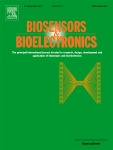 The list of co-authors on a paper about a “bioelectronic composite” was apparently too sparse.
The list of co-authors on a paper about a “bioelectronic composite” was apparently too sparse.
According to its retraction note — posted at the request of the editor-in-chief and the corresponding author — the paper failed to include some of the collaborators.
The Biosensors & Bioelectronics paper looks at a protein complex that could function as part of a “bio-hybrid” device, like a sensor or a solar cell. It has been cited only by its retraction according to Thomson Reuters Web of Science.
What went wrong in allotting credit for the work pretty straightforward, according to the note for “Monolayers of pigment–protein complexes on a bare gold electrode: Orientation controlled deposition and comparison of electron transfer rate for two configurations.” Here it is in full:
This article has been retracted at the request of the Editor-in-Chief and the Corresponding Author, Muhammad Kamran. This paper has been withdrawn as the authors did not fully consult with their project collaborators prior to publication and failed to include them as co-authors of the article. This is acknowledged by the corresponding author. The authors and the Publisher would like to apologise for any inconvenience caused.
We asked corresponding author Muhammad Kamran, a physicist at Leiden University, if he plans to publish a version of the paper that makes everyone happy. He said:
Yes the paper will be published again by putting the names of collaborators in the author list. We have actually used their lab facilities therefore, they want to be in the author list.
We asked journal editor Anthony Turner why this wasn’t a simple case of a correction:
If it had been submitted to us with all the authors agreeing that there was an error, it seems to me that it could have been a correction. However, this is not how the case was presented.
For further comment on policy, I really must refer you to the publisher, Richard Newell (cc’d), at Elsevier.
Newell told us the failure to credit the collaborators was “an innocent oversight on the part of the authors:”
In this and most other ethics cases I am privy to and entrusted with confidential and sensitive information which I am afraid I cannot disclose to third parties. That said we at Elsevier wish to be as open as possible as transparency is an important aspect of science publishing and academic collaboration. What I can say is that some of the material presented in the original paper originated with the collaborators and the authors failed to properly accredit those collaborators as fellow authors. The investigation revealed that this was an innocent oversight on the part of the authors which was agreed by all to be the case. The specific circumstances of the case (which I am afraid I cannot disclose) meant that a straightforward corrigendum/erratum was not appropriate, but rather a full retraction of the paper. The authors having recognized their mistake agreed along with their collaborators to remove the paper. I’m sorry if I can’t be more specific for you.
I have received no further communications from the parties involved in this case and have no information regarding the intentions of the author(s) to make a future submission connected with material from the retracted paper.
Like Retraction Watch? Consider making a tax-deductible contribution to support our growth. You can also follow us on Twitter, like us on Facebook, add us to your RSS reader, sign up on our homepage for an email every time there’s a new post, or subscribe to our new daily digest. Click here to review our Comments Policy.
It happens often that authors are included just because laboratory facilities are used. However, is that always justified? Should the use of laboratory facilities warrant authorship?
You put it very politely. Sharing facilities, preparing samples, or similar incidental contributions cannot justify authorship by any accepted ethical standard that I’m aware of. At best it is something one does as a favor to one’s colleagues, or in hope (not expectation) of engendering a productive collaboration. My experience is, unfortunately, also that “gift authorship” is common, but since not all journals require a statement of individual (intellectual) contributions, there is no realistic sanction for including non-authors. I would welcome mandatory author contribution statements in all journals to eliminate this problem–except that publishers probably realise that it is not in their interests to impose any sort of ethical stringency. Until that day comes, we will have to be content with our suspicions when a 3-page article has 7 authors.